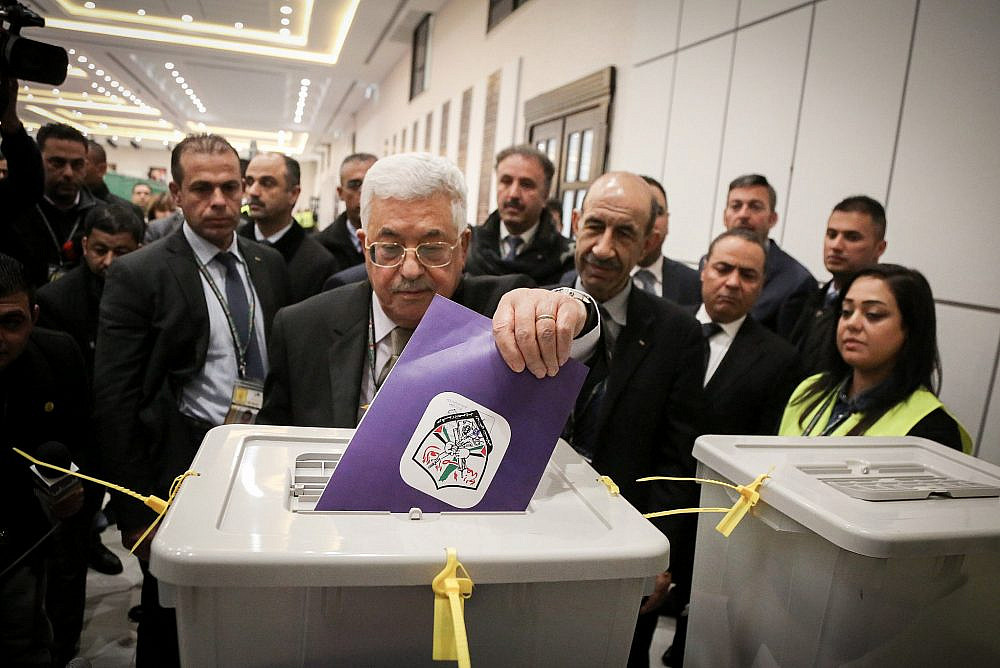In an article for +972 last month about the upcoming Palestinian elections, scholar Dana El Kurd delivered a thorough critique of the Palestinian Authority’s track record of deepening authoritarianism and the futility of holding elections in such a context.
She argued that “rather than pursuing PA elections, Palestinians should turn their focus instead to reviving the Palestine Liberation Organization,” the chief organizational framework and representative body of the Palestinian national movement. The PLO, she continued, needed to be reformed and repositioned in status ahead of the PA; this had been the intended institutional hierarchy, before the signing of the 1993 Oslo Accords and the commencement of the Palestinian state-building project steadily marginalized the PLO.
El Kurd’s overall evaluation is compelling and agreeable. That being said, we do not see eye to eye about the value of the upcoming elections — a topic I cover at greater length in a recent article for The National Interest and the Brookings Institution.
El Kurd is far from alone in her election cynicism; various Palestinian intellectuals who are pro-democracy voices have objected to the upcoming elections on substantive grounds. Marwa Fatafta and Alaa Tartir, among other experts, have offered comparably valuable critiques alongside El Kurd, while promoting the same recommendation of focusing on PLO reform.
Yet in reading all these analyses, I cannot help but notice that they are failing to grapple with an essential problem: implementation. In other words, they do not offer a clear pathway to carrying out this reform, or suggest a means of overcoming the obstacles that stand in its way, or fully account for the fundamental power dynamics at play. Granted, there are no easy answers to this problem; but that doesn’t make the challenge of finding appropriate solutions any less germane.
Who is the political agent?
Over the years, there have been many policy recommendations — including ones I proposed in a 2019 paper for the Brookings Institution — seeking to incentivize or enable the Palestinian leadership to bypass persistent obstacles to political reform, as well as to advance reconciliation between the divided political parties, chief among them Fatah and Hamas.
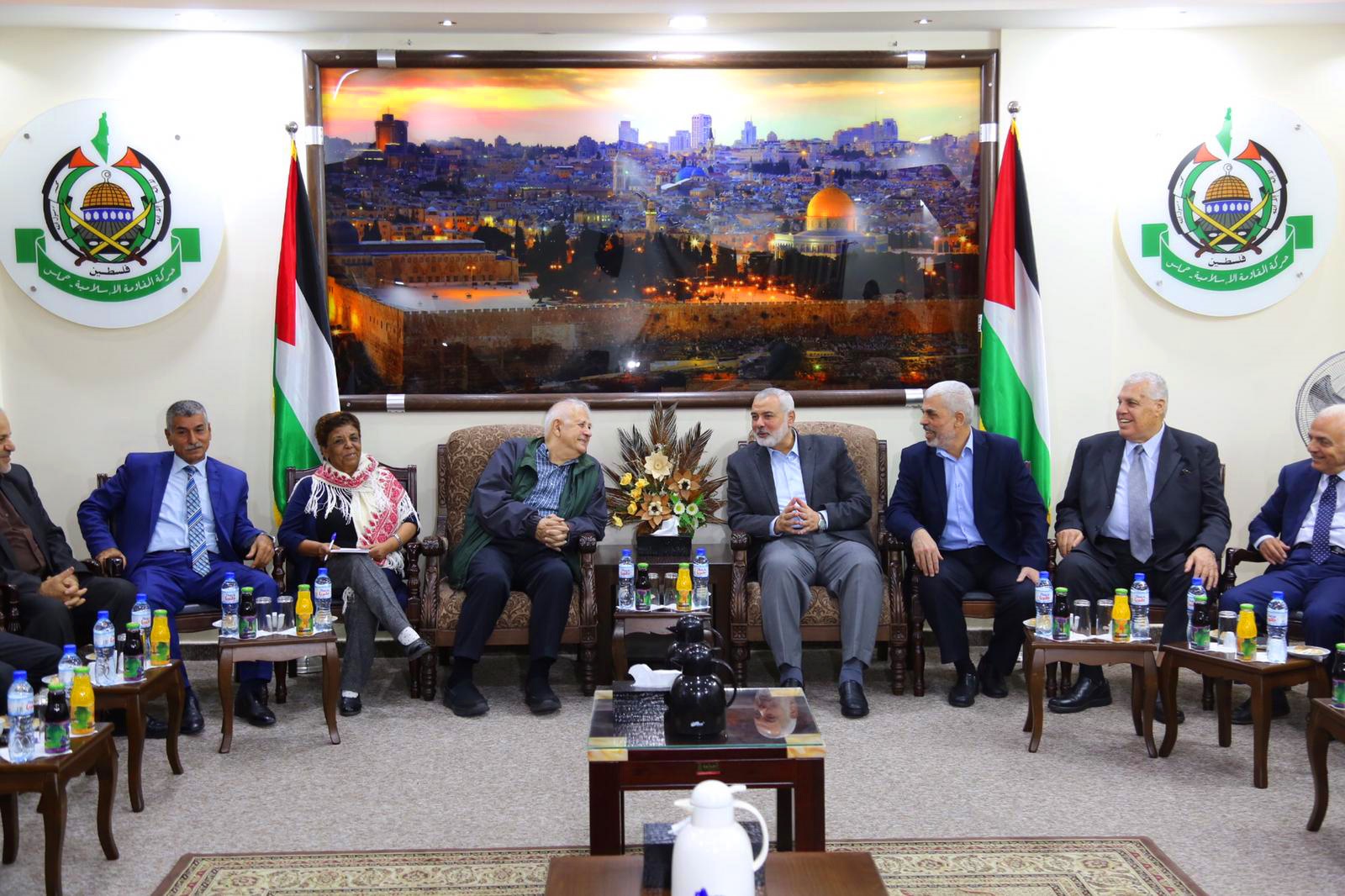
Those recommendations, of course, require the people in power to execute them. But what happens when those in control are unwilling or incapable of implementing such reform, and are unaccountable to their public? The simple answer is that nothing happens at all.
Reform doesn’t just rely on a political program; it needs a viable political agent to see it through. But who is that agent in the Palestinian context? It’s certainly not Fatah leader and President Mahmoud Abbas, or Hamas’ political chief Ismail Haniyeh; if they had truly wanted reform, it would have happened already, and they have had ample opportunity to do so. Their parties much prefer the status quo, in which they rule over their respective fiefdoms, all while solidifying their grip on power and ignoring the public will.
Yet at the same time, it is doubtful that reform can be achieved by bypassing the current leadership structure. Most refugee and diaspora Palestinians were cut off from the PLO when the bulk of its leadership relocated to the occupied territories in 1993 as part of the Oslo Accords. The civil society organizations, labor and student unions, and prominent figures that mobilized the diaspora no longer have a substantive voice in the organization. Today, given the institution’s abeyance, its arcane structure, and the geographic dispersal of Palestinians across many states uninterested in allowing Palestinians to organize politically, securing genuine representation in the PLO is no simple task.
As a result, Abbas, as chairman of the institution, is able to manipulate PLO representation to suit his interests, as he did in 2018 when he convened a meeting of the Palestinian National Council (PNC) in Ramallah and seated more loyalists to rubber stamp his rule. While Abbas has now called for PNC elections to take place in August 2021, I have not come across a single person who believes this will actually happen.
Another important yet unanswered question is the PLO’s financing, which of course has an impact on the organization’s ability to function and carry the mantle of leadership. The PLO’s historical sources of funding — which came mainly from Arab states, taxes levied on Palestinian expats in the Gulf, and private donations — have dried up or been directed elsewhere. The little funding that the PLO receives today comes from money delivered first to the PA, not the other way around.
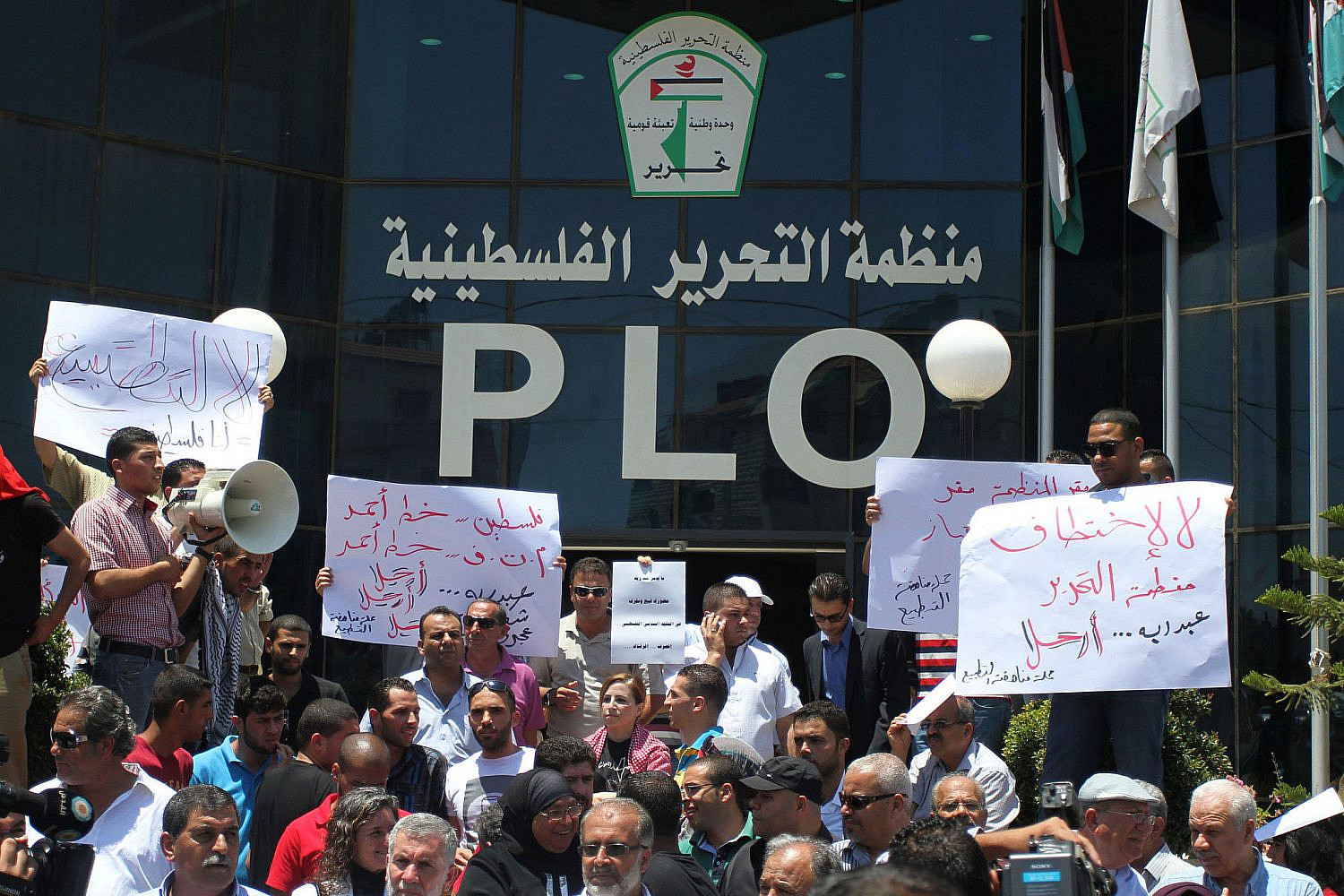
What is especially problematic about funding is that all the factions that receive money from the PLO as part of their membership are dependent on the dispenser of those funds: Abbas. That is why none of them offer much in the way of opposition to his rule and his unwillingness to initiate substantive PLO reform. Moreover, many of these factions — such as the Palestinian Popular Struggle Front, the Palestinian Liberation Front, and As-Sa’iqa — exist in name and legacy only, commanding little to no popular support today. Their “leaders” are simply party to a transaction: approval for Abbas in exchange for financial resources.
Eager for something new
So, where does that leave Palestinians seeking to reform and revitalize the PLO? In short: out of luck. The process of reform requires leaders who will not act as obstructionists to it. As I point out in my recent article, there are essentially three ways to change who is in power: “through popular uprising or coup d’état; by establishing rival institutions capable of usurping the popular mandate; or through elections. Of these, only elections are straightforward, timely, and practicable.”
While the limitations of PA elections should be acknowledged — especially the circumstances of repression and interference, as experts like El Kurd raise — it would be misguided to ignore the potential that these elections inherently hold to bring about some change, or to ignore the desire of the Palestinian electorate to participate in them.
Indeed, around 93 percent of eligible Palestinian voters in the occupied West Bank, East Jerusalem, and Gaza have registered to cast their ballot. Of these, approximately half have not previously voted due to the 15-year gap since the last national election in 2006. That means most of these Palestinian voters are young — and younger voters are less tied to the old factions that have dominated politics, and are eager for something new.
But it is not just younger voters who want change; as recent polling shows, Fatah and Hamas have become deeply unpopular among the entire Palestinian population. And in the context of the PA’s new electoral system of proportional representation — which replaces the old winner-takes-all system — smaller parties have a stronger chance of entering the political fray, and could even gain significant leverage in negotiations to form a governing coalition.
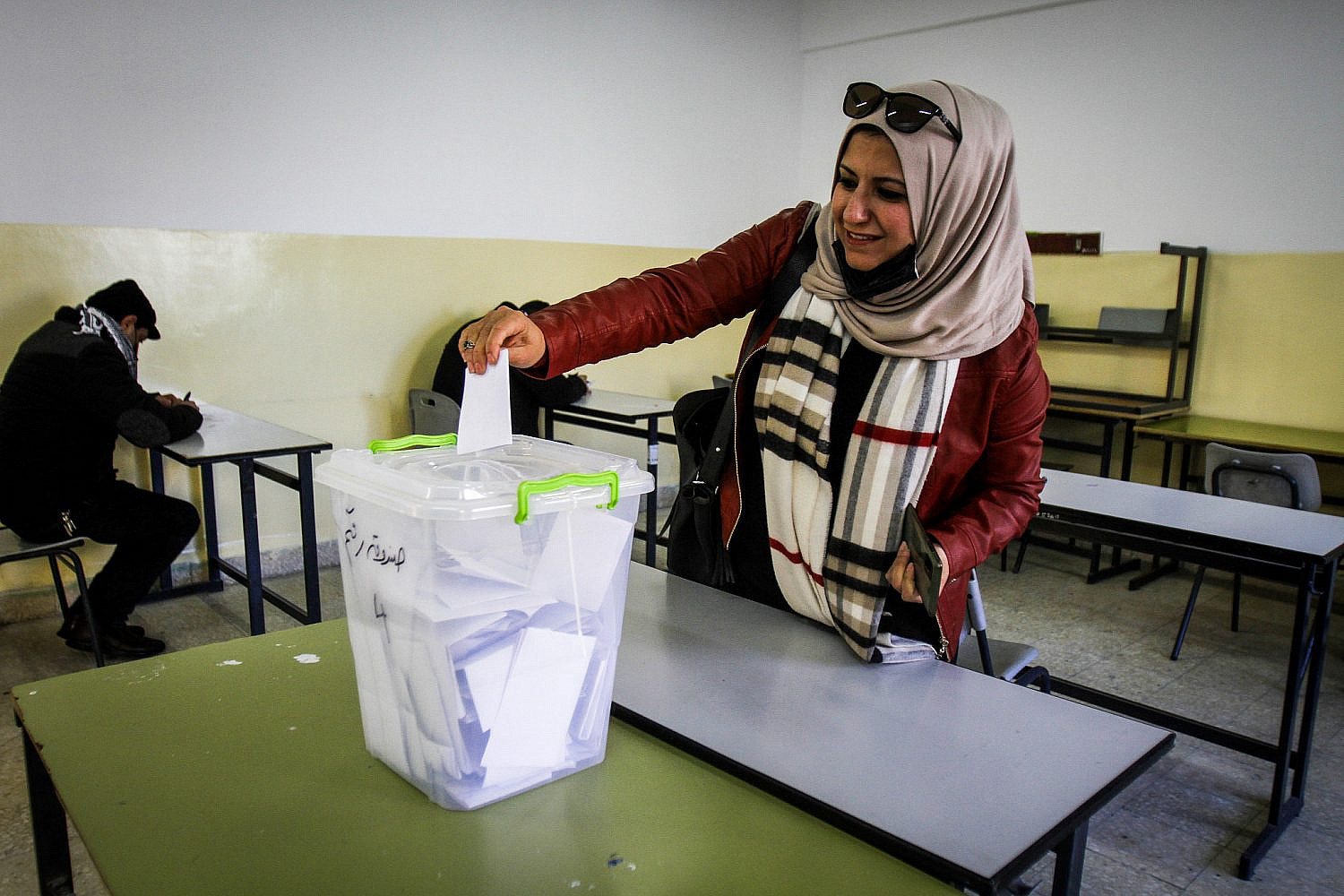
In the meantime, Abbas is having a difficult time holding his ruling Fatah party together ahead of the election. In the past two months, a number of fissures within Fatah have emerged and continue to widen, with many party leaders clearly feeling marginalized by Abbas’ authoritarian leadership. Abbas has reportedly even threatened to use physical force against any Fatah member who does not run on his slate.
So far, Marwan Barghouti, the prominent Fatah leader currently serving five life sentences in Israeli prison, has said he will challenge Abbas for the presidency in July — and recent polling suggests he would win. Other party leaders like Nasser al-Kidwa — who was expelled from Fatah last week because of his dissent from Abbas — have said they will run opposing lists.
A list connected to the exiled Mohammed Dahlan is also in the mix. Salam Fayyad, an independent and former prime minister, has also announced he will run a list. Hamas, too, is undergoing its own internal elections; the party’s incumbent Gaza leader Yahya Sinwar won re-election last week, while Ismail Haniyeh faces contestants for the political bureau’s leadership position. And many more new and younger voices are eager to enter the fray.
To change the PLO, change the PA
Taken altogether, there has been more Palestinian political activity in the past two months than over the past decade. None of this negates the years of repression, depoliticization, and demobilization of the public by both Palestinian security forces and the Israeli occupation. But those attacks will continue with or without elections; just last week, Abbas issued another presidential decree significantly hampering the work of Palestinian NGOs. How much longer can Palestinian civil society withstand such assaults by unaccountable leaders?
The immediate impact of PA elections may not be far-reaching, and will not necessarily trigger substantive reform at the PLO level. However, knowing the power dynamics and relationship between the two institutions, it is very likely that changes within the PA will instigate changes to the PLO.
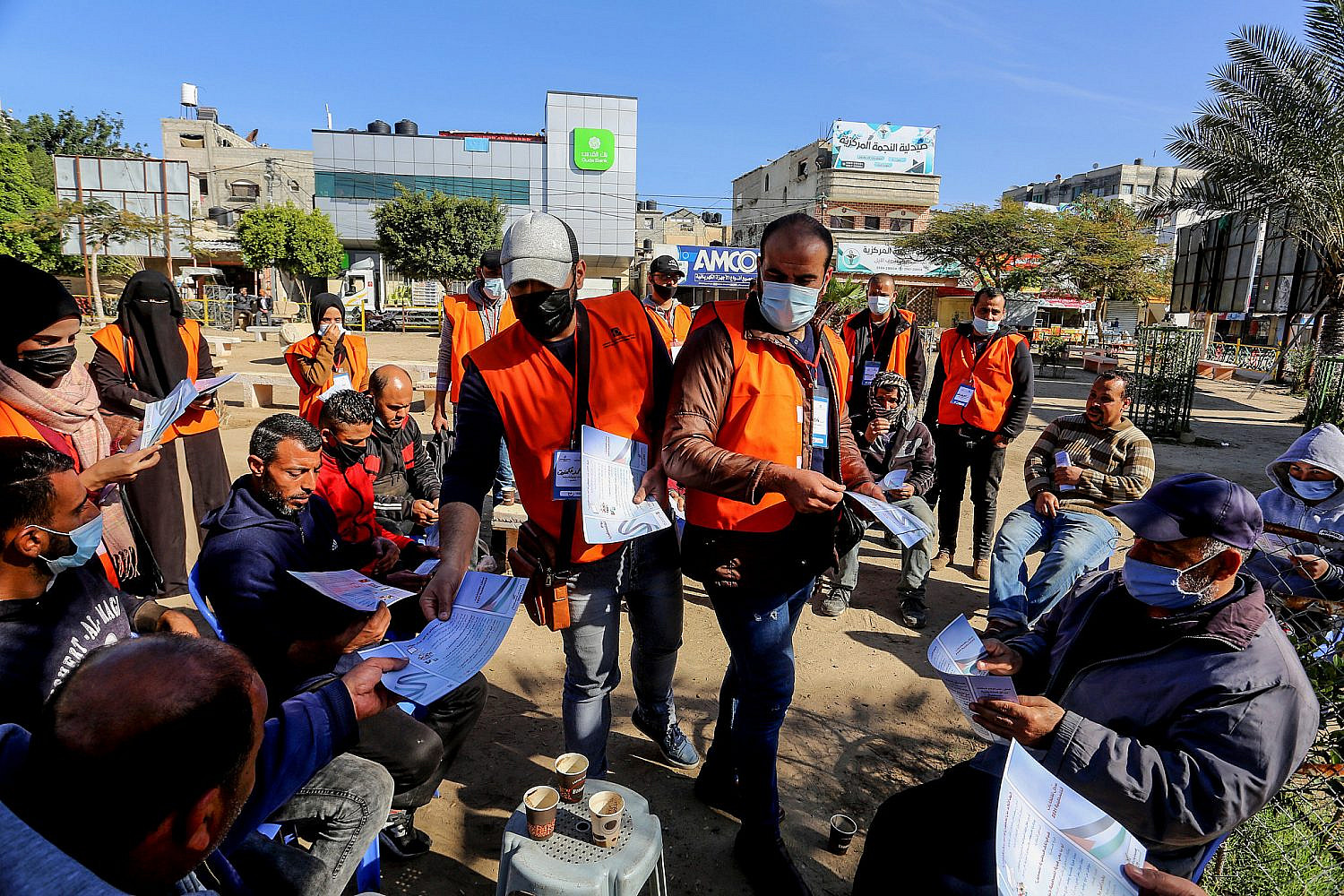
For example, the 132 members of the PA’s Legislative Council will automatically become members of the PLO’s National Council, which in January decided to reduce its membership from 747 seats to 350 — 150 from inside Palestine, and 200 from the diaspora. This means that, after the PA elections, over a third of the PLO’s public body will instantly be democratically representative of a substantial portion of Palestinians.
Even in the best case scenario, reform and revitalization of the PLO — let alone the liberation of the Palestinian people from Israeli rule — is not going to happen overnight. In the meantime, what should become of the 5 million Palestinians living under occupation who are in need of governance?
The fundamental needs of Palestinian society — like education, healthcare, cultural development, policing, economic policy, and infrastructure investment — can either be administered through limited Palestinian autonomy under Israeli sovereignty, or through direct Israeli military rule with no Palestinian control whatsoever, as was the case before the Oslo Accords. The former may relieve Israel of the burdens and costs of administering large Palestinian population centers, but direct military rule also inflicts burdens and costs for the health and self-sufficiency of Palestinian society, which is fighting to remain on its land.
Analysts who treat this choice as an abstract concept, and not a real lived experience, would be doing a disservice to the Palestinian people and their quest for liberty. Societal strength is the foundation of resisting forced displacement and erasure.
El Kurd acknowledges the need for these self-governing structures in her article, but does not make the connection between good governance and accountability through the ballot box. Instead of discouraging Palestinians from participating in the PA elections, anyone interested in national reform should urge them to vote out the obstructionists and vote in the reformists. And if the elections are ultimately fraudulent or stolen, then Palestinians have even greater reason to seek redress in the streets.


